PETA urges ban on all fishing in Alabama state parks
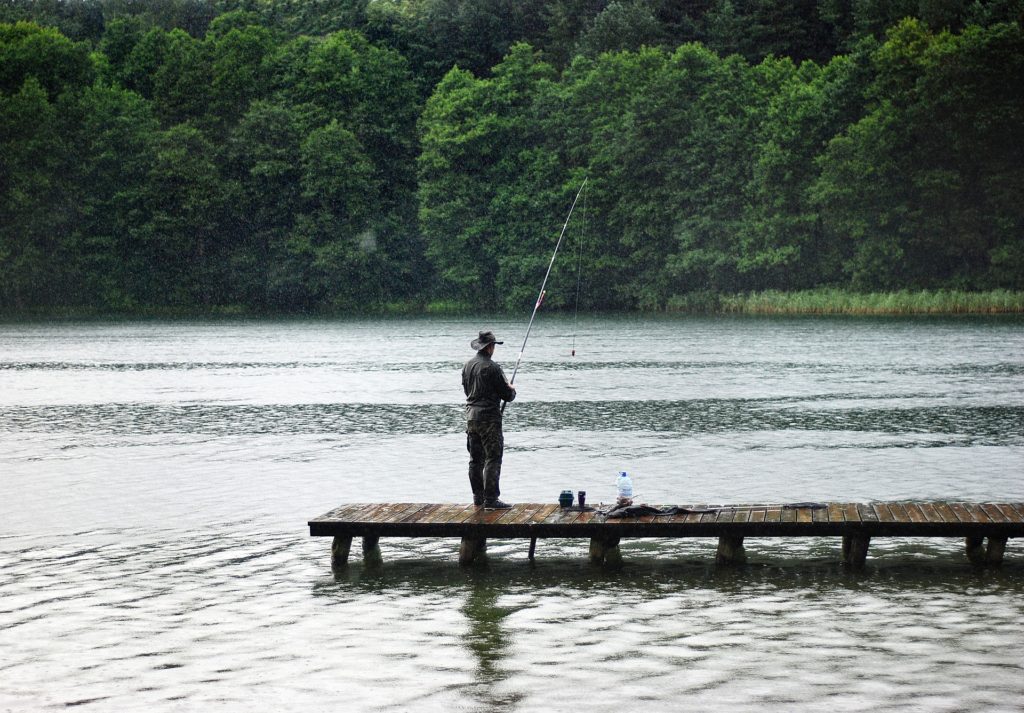
A threatened loggerhead sea turtle died recently after getting hooked by fishing lines twice in one week at Gulf State Park. PETA sent a letter to Alabama State Parks Director Greg Lein, requesting a fishing ban at the park. They also asked him to consider extending the ban to all state parks. PETA noted that fishing kills at least 4,600 sea turtles in U.S. coastal waters annually after they get caught in nets or are accidentally hooked on bait lines. The necropsy revealed that two fishhooks had perforated the turtle’s intestine and that a third “was anchored at the entrance to the [turtle’s] stomach.” “Gulf State Park should provide at least threatened and non-target animals with a safe haven,” says PETA President Ingrid Newkirk. “PETA is asking Lein to protect all the park’s wildlife, from trout to turtles, by making fishing off-limits,” the letter continued. “Whether people like to think about it or not, fish are sentient beings, capable of feeling fear and pain—especially the pain of being hooked through their sensitive mouths, which have many nerve endings. It should be no more acceptable to harm them than it is to harm any other living, feeling beings.” People for the Ethical Treatment of Animals (PETA) is the largest animal rights organization in the world with more than 9 million members. PETA opposes speciesism, a human-supremacist worldview. Their motto states, “Animals are not ours to experiment on, eat, wear, use for entertainment, or abuse in any other way.” PETA’s letter to Lein follows.October 20, 2021 Greg Lein Director of Alabama State Parks Alabama Department of Conservation and Natural Resources Dear Mr. Lein: PETA entities have more than 9 million members and supporters globally, including thousands across Alabama. I’m writing to you on behalf of PETA U.S., the largest animal rights organization in the world, in response to news that a threatened loggerhead turtle recently died eight days after he had accidentally been hooked (for the second time that week) and rescued at Gulf State Park Pier. While we applaud park security and naturalists who helped rescue this turtle—two fishhooks had also perforated his small intestine and a third hook was in the entrance to his stomach—we have an urgent request to get ahead of this problem: Please ban fishing at Gulf State Park to protect turtles, fish, and other wildlife.Every year, anglers worldwide leave behind a trail of victims that includes turtles, birds, and other animals who sustain debilitating injuries after swallowing fishhooks or becoming entangled in fishing line. Wildlife rehabilitators say that abandoned, lost, or discarded fishing gear is one of the greatest threats to aquatic animals and makes up about 10% of all ocean litter. It damages marine habitats and entangles marine animals, leading to injury, illness, suffocation, starvation, and death. Researchers estimate that fishing kills at least 4,600 sea turtles in U.S. coastal waters annually, because they become caught in nets or hooked on bait lines. According to the National Oceanic and Atmospheric Administration, bycatch in fishing gear is the greatest threat to loggerhead turtles worldwide, and a 2010 study estimated that as many as 1.5 million sea turtles were caught in fisheries worldwide over an 18-year period.Whether people like to think about it or not, fish are sentient beings, capable of feeling fear and pain—especially the pain of being hooked through their sensitive mouths, which have many nerve endings. It should be no more acceptable to harm them than it is to harm any other living, feeling beings. As more information on fish sensitivity and pain receptivity has been in the news lately, yet another benefit to a ban is that fewer of these sensitive animals would be suffocated, gutted while still alive, or hooked and thrown back, only to die slowly and painfully from the resulting injuries and stress.I hope that in light of both this recent hideous incident and the ongoing dangers that angling poses to turtles and other wildlife species, you’ll impose a ban on fishing at Gulf State Park and consider extending it to all state parks. Thank you for your consideration. I look forward to hearing from you. Very truly yours,Ingrid Newkirk President
Alabama State Parks earn 17 TripAdvisor Awards for 2017

TripAdvisor, an industry leader in online travel reservation services and user reviews, has presented 17 Certificate of Excellence awards to 11 Alabama State Parks for 2017. The 17 awards are the most ever for Alabama’s State Parks, tying last year’s number of honors from the world’s largest travel site. Gulf State Park earned four awards, and Joe Wheeler State Park Lodge earned its first Certificate of Excellence mention. DeSoto State Park was awarded a Certificate of Excellence from TripAdvisor for its mountains, nature and wildlife areas, such as the splendid DeSoto Falls, along with one for the overall park. (Photo / Mike Perrin) Gulf State Park was honored for its overall park, its piers and boardwalks, its campground and for the Hugh Branyon Backcountry Trail. Lake Guntersville State Park, DeSoto State Park and Joe Wheeler State Park received two awards each. Along with its first award for lodging at Joe Wheeler State Park Lodge, the park also was honored for the overall park experience. Gulf State Park was awarded four Certificates of Excellence from TripAdvisor for 2017, including one for the Gulf State Park Pier. The pier offers 2,448 feet of fishing space along its rails. (Photo / Lynn Jordan) “We all know how important Joe Wheeler is in attracting tourists to North Alabama,” said Tami Reist, president and chief executive officer of the Alabama Mountain Lakes Tourist Association. “The park is such a wonderful place to spend time in the outdoors in Alabama, and we are so pleased that TripAdvisor’s users recognized it this year.” DeSoto State Park was mentioned for its mountains, nature and wildlife areas, along with an overall park certificate. Guntersville picked up a lodging award for the Lake Guntersville State Park Lodge and an overall award for the park. In 2016, Lake Guntersville State Park was ranked No. 1 on TripAdvisor’s “25 Travel Destinations with Skyrocketing Vacation Rental Interest” list. TripAdvisor, which has more than 500 million reviews and opinions posted online, is a major driver of tourists to new destinations across the country. The Hugh S. Branyon Backcountry Trails were singled out for an award from TripAdvisor. The trails are part of the Gulf State Park. (Photo / Alabama State Parks) “We’re thrilled that TripAdvisor users love our parks as much as we do,” said Greg Lein, Alabama State Parks director. “Our staff works hard to make sure visitors have first-class experiences enjoying our beautiful state, and it’s nice to be recognized. Joe Wheeler State Park Lodge earned a TripAdvisor Certificate of Excellence Award for 2017. (Alabama State Parks photo) “Services like TripAdvisor are important to get the word out about our parks to people who love the outdoors, but may have not considered visiting Alabama. We have a great track record with repeat visitors, proof that when you come to an Alabama State Park you’ll enjoy your experience. There’s something for everyone at our parks.” Every park in the Alabama State Parks System is benefiting from the passage of Amendment 2 in last November’s election, which by prohibiting parks’ funds from being transferred allows for renewed maintenance projects. Regular maintenance and other improvements help influence visitors to make Alabama State Parks their outdoors recreation destination. The other awards from TripAdvisor were for best parks. Those honorees are Cathedral Caverns, Monte Sano, Oak Mountain, Wind Creek, Cheaha, Lakepoint and Chewacla. Republished with permission of Alabama NewsCenter.
Clay Scofield: Amendment 2 fact vs fiction, check the records
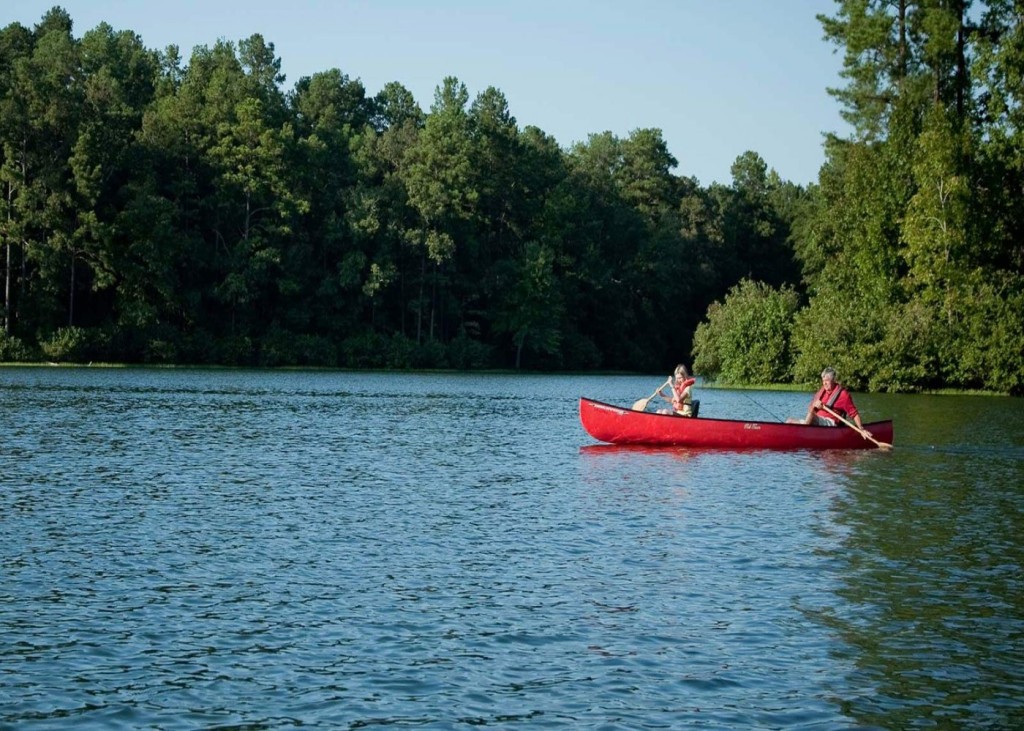
Visiting Alabama’s State Parks and boating on Lake Guntersville were staples of my childhood. As I’ve travelled and experienced other public lands around the country, I’ve grown to appreciate these parks more and recognize the incredible gift from God our state parks are to us. This is why, for the last few years, I’ve been doing all I can to protect these amazing resources. The state parks belong to the citizens of Alabama, and I worked this year to write a constitutional amendment that would help ensure our parks are protected for future generations. I hope you’ll join me in supporting our parks and voting yes for Amendment 2 this Tuesday. Unfortunately, there has been a lot of misinformation spread about Amendment 2 recently. The primary goal of Amendment 2 is to ensure that park guest fees stay in the system to maintain our beautiful state parks. Amendment 2 also allows all parks the option to enter into concession agreements with businesses, which many of the parks already have the ability to do and will level the playing field by allowing that option to other parks. These private business partnerships benefit our park system. At no time does the park system lose ownership of a park or park facility if they enter into these “concessionaire” agreements. It simply gives them another option if they can’t afford to run a particular park or park facility rather than being forced to shut it down. If these private business agreements were not an option, Roland Cooper State Park would still be closed to the public today, the new ziplines at Guntersville would never have been built, the cable ski system at Oak Mountain would not be available to guests and plans for other exciting new attractions at our state parks would not be in the works. Keeping our parks open and providing new adventures so our parks system is continually meeting guest expectations is the reason it is important to vote yes on Amendment 2. Contrary to some of the information being shared around the state, Amendment 2 does not privatize the parks system and does not allow for corporations to develop on park lands. I can assure the people of Alabama, if Amendment 2 did privatize the parks or put the future of the parks system in jeopardy, I would be working to defeat it. The reason myself, our state parks staff, dozens of community leaders, conservation organizations and tourism bureaus from around the state are supporting Amendment 2 is because it protects our parks system and ensures the parks are sustainable for decades to come. The misinformation about Amendment 2 is being spread by individuals whose top priority is not supporting the parks or securing stable funding for the system. A quick Google search will bring up information that shows the real intentions and special interests behind these “park supporters” advocating against Amendment 2. They have ties to the competing developers on the Gulf Coast opposing the construction of a new Lodge & Conference Center at Gulf State park. Their motives are selfish and they’re not being honest with the people of Alabama. My record of supporting the parks is clear. I’ve been an advocate of the parks long before I entered public service and have continually stood up for the parks system in the last few years. When the parks funding was being transferred to the state General Fund year after year, I was educating lawmakers about how the parks funding operates and why transferring funds hurt the parks system. During this time where were these “park supporters?” I can assure you they were not in the state house trying to stop these funding transfers. Instead, some were actually filing lawsuits against the parks and projects that would benefit the entire system. When the parks funds were depleted and out of options for additional revenue, I joined my colleagues in sponsoring a bill to create a specialty boat tag that would bring an additional $3.5 million in revenue to the parks without raising any taxes. As this legislation was being passed these “park supporters,” the ones furiously working against Amendment 2, were again absent from the state house and were not in the communities advocating for these specialty tags or speaking with the public about a solution to the funding crisis. When the parks budget had reached a dire point and parks began closing facilities and entire parks, I was fighting for these parks and the citizens that love them. When five parks closed these “park supporters” were in court because their lawsuits against the parks were being dismissed by a judge. It’s our responsibility as voters to educate ourselves on the issues. It’s also our responsibility to research sources and understand the messenger(s) background. My background and relationship to the parks is transparent. I have three state parks in my district, I represent three counties that have part of a park within their boundaries. I have six state parks in my area that are on the line here. My interest in protecting the parks and seeing them thrive for generations is obvious from my record. I hope you will spend some time looking at the facts as it relates to Amendment 2. If you can’t take my word for it, please read the many letters of support, Facebook messages and take a look at the broad coalition who support our parks that are advocating for Amendment 2. I plead with you, if Amendment 2 does not pass I fear what the Alabama State Parks System’s future will hold based on the hard lessons we have learned from the last few years. The parks can not survive if their funding is not protected. These are not scare tactics. • • • Clay Scofield is a state senator from Guntersville, Alabama. He represents the 9th district. He represents Blount, DeKalb, Madison and Marshall counties.
Linda B. Reynolds: Enrich the lives of your children, vote ‘yes’ on Amendment 2
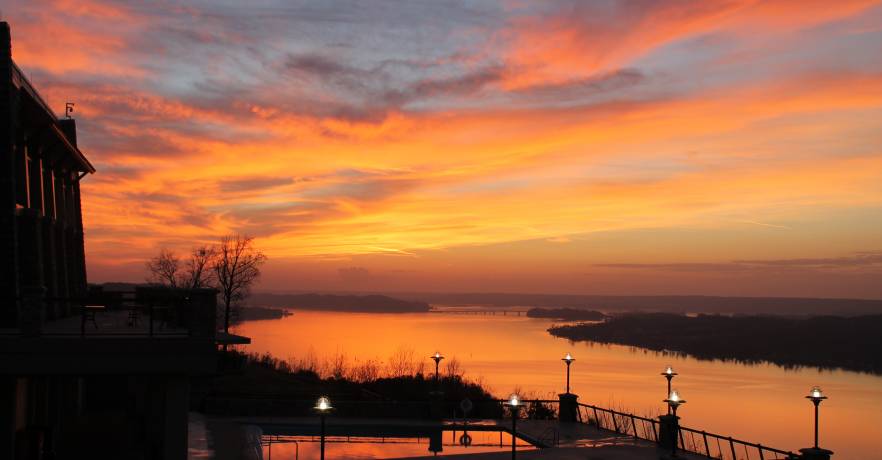
Several people have written op-ed pieces on the upcoming Amendment 2, which will allow state parks to keep the money they generate. I want to emphasize the state parks as a great big outdoor classroom, teaching all subjects and providing a great time in the process. I spent almost 20 years as the naturalist at Lake Guntersville State Park and I visited schools in 10 counties. Also, those schoolchildren came to the park on field trips. I had pre-school, elementary, junior high, high school, and university students. Then there were the professors who were studying something unique like bats, salamanders, fish, etc. One professor even came from the University of Northern Ontario to study our various crabapple trees. Almost every time I went to a school, shortly after, a child would come to my park office and announce that they were camping (for the first time). Then they would say, “You came to my school”. Lake Guntersville State Park is lucky to have old homesites clustered around a number of springs. It also has an old cemetery, so not only did we study the plants and animals, we studied history. We studied English language from the poetry on the tombstones and art history from the symbols on those grave markers. The numerous baby graves led to discussions about how important it is to be vaccinated. We used the golf course sometimes at night when planetarium personnel would do astronomy events. We went on night hikes to listen to owls and see glowworms. One time, I had just read that city children sometimes have trouble walking in the woods. A few weeks later, I had an inner-city Girl Scout troop for a hike. A few yards down the trail, they began to fall down. Then I told them what I had read and we all got the giggles. After a few mishaps, all was fine and we had a great time. I am a firm believer in exposing children to the natural world and there is no better way than taking them to a state park. At Lake Guntersville State Park, I gave kids opportunities to help our program. We did not do the Junior Ranger thing. We had Associate Naturalists. They donated exhibits to the Nature Center display, they helped care for the orphaned animals that I always seemed to acquire — especially the opossums. They helped clean the aquarium, bathed the Box turtles and chauffeured me in the golf cart when I needed to monitor the bluebird boxes. They helped with the trail work and learned something in the process. We had college students from all over the U.S. who served as interns. Now they are teachers, National Park workers, or serve in some other outdoor professions. I never tired of seeing the expression on a child’s face: a 4-year-old with a butterfly, or a child of any age when they saw their first bald eagle. Several parks have naturalists on duty, and if they don’t, they can probably round up a volunteer to guide a class of children. And, parents, hiking with your children is a fun and exciting thing to do. And it’s CHEAP! Today’s children are tomorrow’s park users and we all need to nurture their interest in what is outside. Every state park has something unique: waterfalls, CCC structures, caves, lakes, beaches — something wondrous. So come on folks, mark that ballot for Amendment 2. ••• Linda B. Reynolds, is a retired park naturalist for the Alabama Department of Conservation and Natural Resources.
Greg Lein: Celebrate Alabama State Parks Heritage
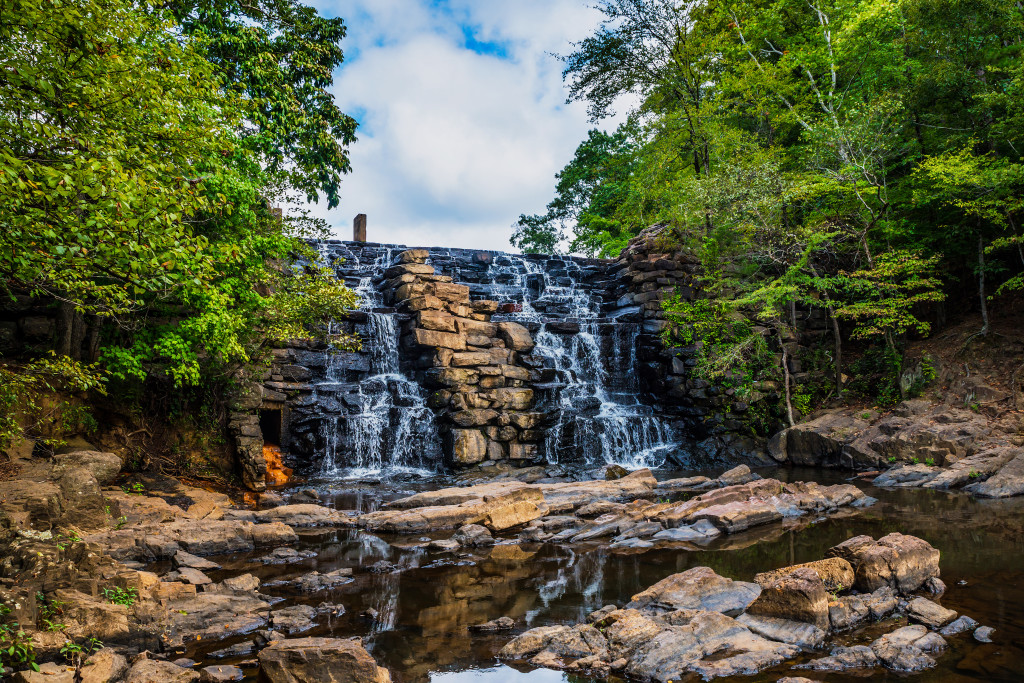
Labor Day weekend in Alabama marks two major events for citizens of our state: the unofficial end of summer and the official start of college football season. As the leaves eventually begin to change and fall temperatures start to prevail, many Alabamians will spend their Saturdays over the next few months focused on their favorite team and tracking their fantasy leagues. Alabamians’ love for parks extends much further than the Saturdays spent at the ballpark. Parks of all kinds are important to our communities; national and state parks provide dozens of options for people to go unwind. As you prepare for your Labor Day adventure and officially kick off fall, I encourage you to get outside and experience some of the amazing opportunities in Alabama’s State Parks as well as the thousands of attractions that can be found in city, county, and National Parks. Last week the National Park Service (NPS) celebrated 100 years of service and stewardship. Alabama’s State Parks are celebrating their 77th year of service. These incredible public lands are much more than simply protected lands; they are outlets for cultural, historical and environmental education. Parks also give citizens countless opportunities for recreation and help provide an exceptional quality of life with scores of recreational options. The Alabama State Parks system protects more than 47,000 acres of land across the state and offers dozens of recreational options. Within Alabama’s State Parks you’ll find hundreds of miles of trails, golf courses, mountain top views, serene beachfront, luxury resorts, ziplines, archery courses and museums that tell the story of Native Alabamians and early pioneers. These parks are as diverse and distinct as the guests that visit them each year. Parks provide opportunities for people of all backgrounds. Regardless of socioeconomic background, education, and physical ability, there’s something for everyone to enjoy at the parks. Our leaders had the choice generations ago of whether to keep these lands available to citizens. They made the right decision to keep our parks available to future generations. We hope all these amazing public lands will still be available to all Americans in the next century. The citizens of Alabama are faced with a decision this November about whether they want their State Parks preserved for future generations. A “yes” vote on Amendment 2 on the November 8 ballot is a vote to help ensure our incredible State Parks will remain available and thriving for future generations. The proposed Constitutional Amendment would protect the State Park system’s money, keeping it within the parks and preventing it from being taken and used elsewhere. Since almost all of the money in the State Parks’ budget comes from Parks’ users, it is only right for those funds to remain in the Parks. Let’s continue to celebrate our “Parks Heritage” during this centennial year and let us come together to ensure the future of our State Parks by voting “Yes” on Amendment 2 – and encourage all your friends and neighbors to do likewise. ••• Greg Lein is the Director of Alabama’s State Parks.
Clay Scofield: Protecting the future of Alabama State Parks

Nearly 80 years ago, the Civilian Conservation Corps began construction of Alabama’s state parks system. Since the first stone buildings of Cheaha State Park opened to guests in 1939, Alabama’s State Parks have been providing memorable outdoor retreats and dozens of recreational options to guests. Alabama’s Legislature made history last week and took a major step toward ensuring our State Parks stay available to the people of Alabama for decades to come. Last Wednesday, the Alabama House of Representatives passed a bill that I was proud to sponsor — SB260 — to add a constitutional amendment to prohibit transferring funds from the Alabama State Parks System’s budget to the state’s General Fund. Now that the constitutional amendment has passed both the House and Senate by supermajorities, the people of Alabama will get an opportunity to vote on the future of their state parks system on the general election ballot in November. The need for this constitutional amendment came after the Legislature took steps to fill holes in the General Fund budget by transferring $15 million from the state parks since 2012. Luckily, a vast majority of legislators joined me in working to end this practice and to allow the state parks’ money to stay within our beautiful parks system. I’m proud of the support this constitutional amendment received from our lawmakers, and now I hope the citizens of Alabama will join us to ensure our parks’ funding is permanently protected. Our parks are God-given natural resources that belong to the people of Alabama, and I know the people of Alabama care deeply about these beautiful spaces. Over the last year and a half, I, and many other lawmakers, have received literally hundreds of phone calls imploring the State Legislature to ensure these parks remain available to the people and receive proper funding. I’ve been joined by a few other passionate lawmakers who are also eager to see our state parks system protected and fully funded. This constitutional amendment is only one of three bills moving through Alabama’s Legislature aimed at helping to protect our state parks system. This constitutional amendment is to protect the parks’ funding, but does not create new revenues streams for the parks. Sen. Gerald Dial has sponsored two bills that would create new streams of revenues for the parks. SB 163 allows citizens renewing their car tags the option of a specialty tag supporting Alabama State Parks; this special parks tag would be $50. SB79 would give citizens a similar option of a specialty tag when renewing their boat registration. The fees from these specialty tags would go directly to the Alabama State Parks System. Alabama’s state parks have a wide range of natural features, from the rich mountains in north Alabama, to incredible natural caves, lakes and streams teeming with wildlife, to pristine Gulf Coast beaches. The parks have something for everyone, whether it is enjoying a breathtaking view from a lodge restaurant, roughing it in the woods on a primitive camping trip, soaking up the sun in a canoe, or speeding through the trails on a mountain bike. The parks have continually attracted millions of people year after year, and half of all visitors to Alabama’s state parks are from out of state. As a result, Alabama’s state parks bring the people of Alabama much more than beautiful landscapes and countless recreational options. The parks provide a significant economic benefit to the state, $375 million annually. Local businesses, outfitters, hotels, restaurants and convenience stores all benefit from the hundreds of thousands of park-goers each year. Our parks are the pride of these local communities, and I hope you’ll join the fight to help ensure our parks remain fully funded and available for future generations. I encourage all Alabamians to vote in favor of this important amendment on Nov. 8. If you’re interested in getting involved with the fight to permanently fund Alabama’s State Parks, please visit ALParksPartners.com and get involved with Alabama State Parks Partners Coalition, a nonprofit organization fighting to raise awareness and support for our state parks. • • • Clay Scofield is a state senator from Guntersville, Alabama. He represents the 9th district. He represents Blount, DeKalb, Madison and Marshall counties.
Auditor Jim Zeigler: state needlessly closed sixth state park, Rickwood Caverns
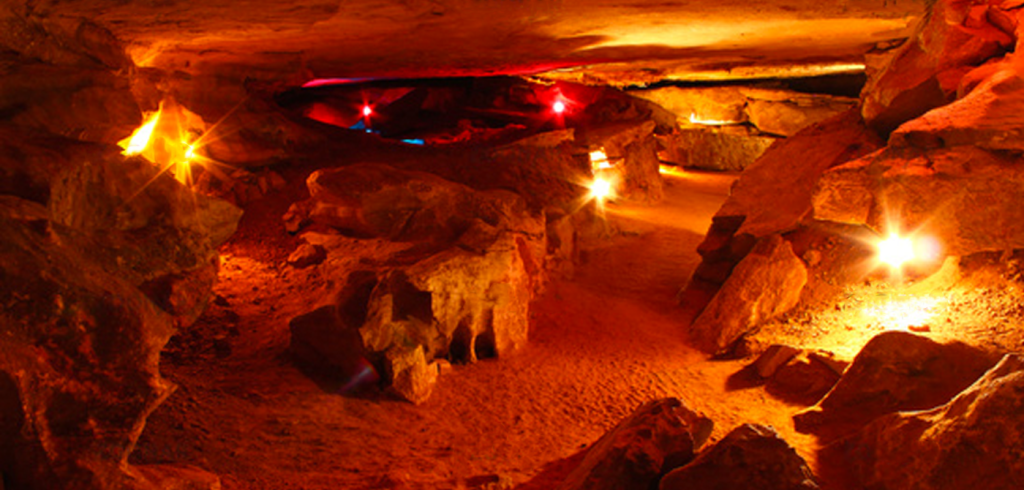
State Auditor Jim Zeigler claims the Yellowhammer state has needlessly closed yet another state park. Marking the sixth state park to close since October, Rickwood Caverns State Park in Warrior, AL quietly closed Monday with no plans to re-open. According to Zeigler, the park had did not need to close as it internally generated 85-90 percent of its necessary operating expenses. “The fees and sales of the parks come close to enough to make the parks a break-even proposition,” Zeigler explained. “With better management, the parks can be self-sustaining, needing no tax dollars and being no burden on the state’s general fund.” Zeigler claims the Rickwood closure blocks one of the oldest Veterans graves in Alabama. That of Revolutionary War Sgt. Alexander Burns who is buried within the park. Burns, who died in 1829, and family donated the land to the state park, and the closure hinders his living relatives from visiting and maintaining the graveyard where he and other family members are buried. The AG will discuss his efforts to re-open the six state parks closed by Gov. Robert Bentley‘s administration at the Mobile Kiwanis Club Wednesday.
Auditor Jim Zeigler continues to lead way in cuts and savings; Where are others?
Promises to cut costs and shrink government are frequent among conservatives during election years. You’d be hard pressed to find a candidate who didn’t talk about these in the last several cycles as big government has became an easy target as state and federal budgets ballooned. The question I pose today is why aren’t we hearing more plans for cost cutting and savings when the budget is the biggest focus in the state? State Auditor Jim Zeigler continues his crusade to address avenues where money can be saved with his latest recommendation to eliminate the office of the Examiners of Public Accounts. In a release sent by his office sent, he notes that the $13 million budget of the examiners office could be shifted to the state parks. Beyond the cost savings, Zeigler’s release states, “The plan will provide more timely audits, because the Examiners are seriously late in their audits. Some state agencies have already privatized their auditing, paying money from their own budgets to obtain an audit they previously got free from the Examiners.” It’s doubtful the Legislature would actually take Zeigler up on his plan to get rid of the Examiners office. Functions of the job would need to continue, especially for the reviews needed for the Sunset Committee. The point is where are all of the other ideas? Why aren’t their reports every day of ideas as bold as Zeigler’s? Zeigler has said he’ll update his proposed plan on Tuesday. We’ll stay tuned for more from him and encourage other elected officials at every level of government to follow his lead and begin making suggestions as well.
Parks director, Governor volley back and forth on park closings
It has been a busy week for Alabama State Parks Director Greg Lein with all eyes on the parks department’s reaction to proposed budget cuts. The division announced plans to close several parks and golf courses May 1 because of budget shortages, but has since backed off that deadline. Al.Com quoted Lein talking about what has happened since announcing the May 1 closing dates. “Since that time, we have received a tremendous amount of support from the public. In addition, the governor’s office and the Legislature have received an outcry for our parks to stay open and for them to receive full funding,” Lein said. “Given these recent developments and discussions that are taking place in Montgomery, Gov. (Robert) Bentley has instructed the state parks division to delay these closings slated for May 1 until further notice.” Bentley announced that the parks would remain open until further notice. The Alabama State Parks system operates 22 parks across the state and welcomes an estimated 4 million to 5 million visitors annually.


